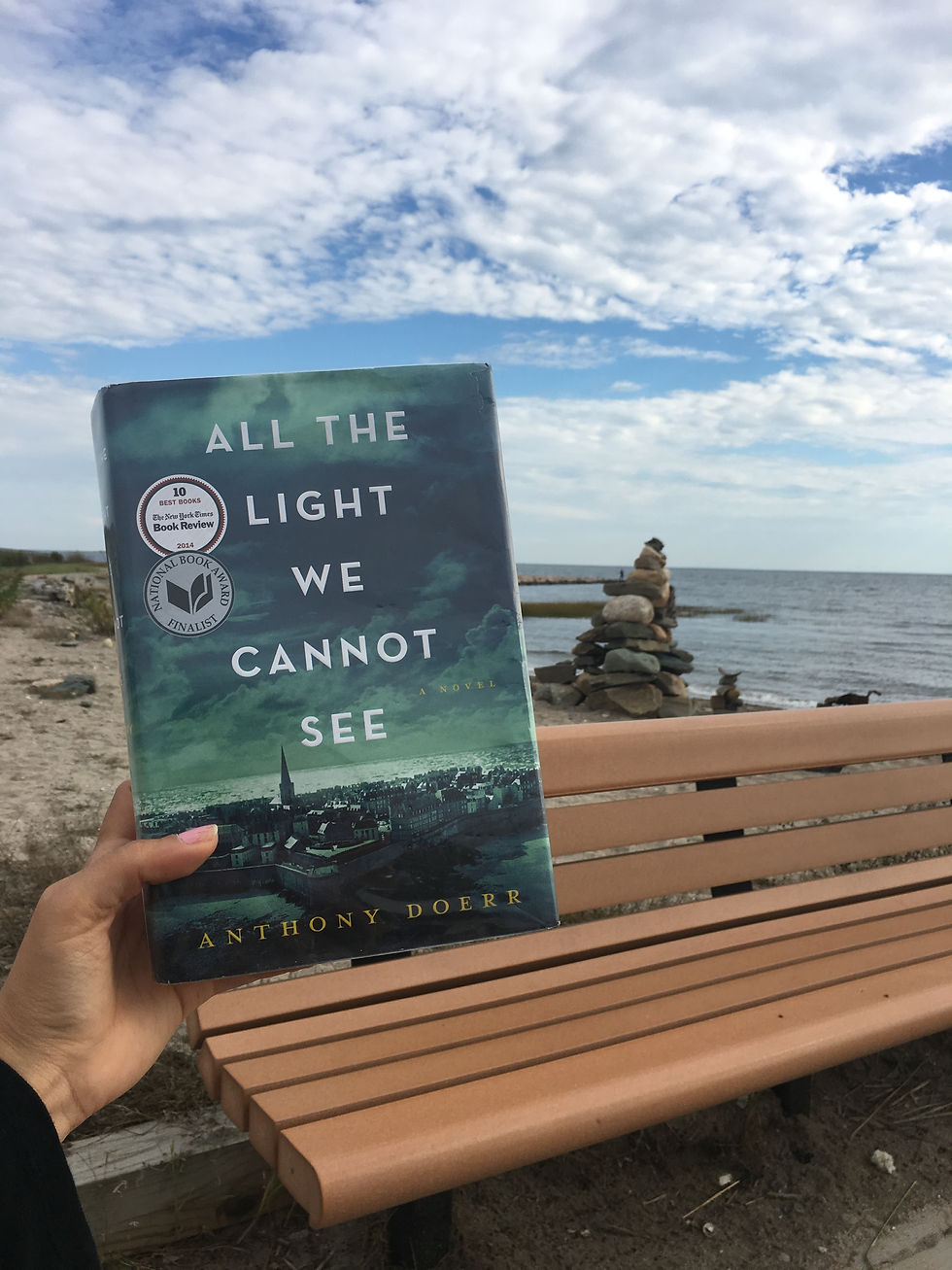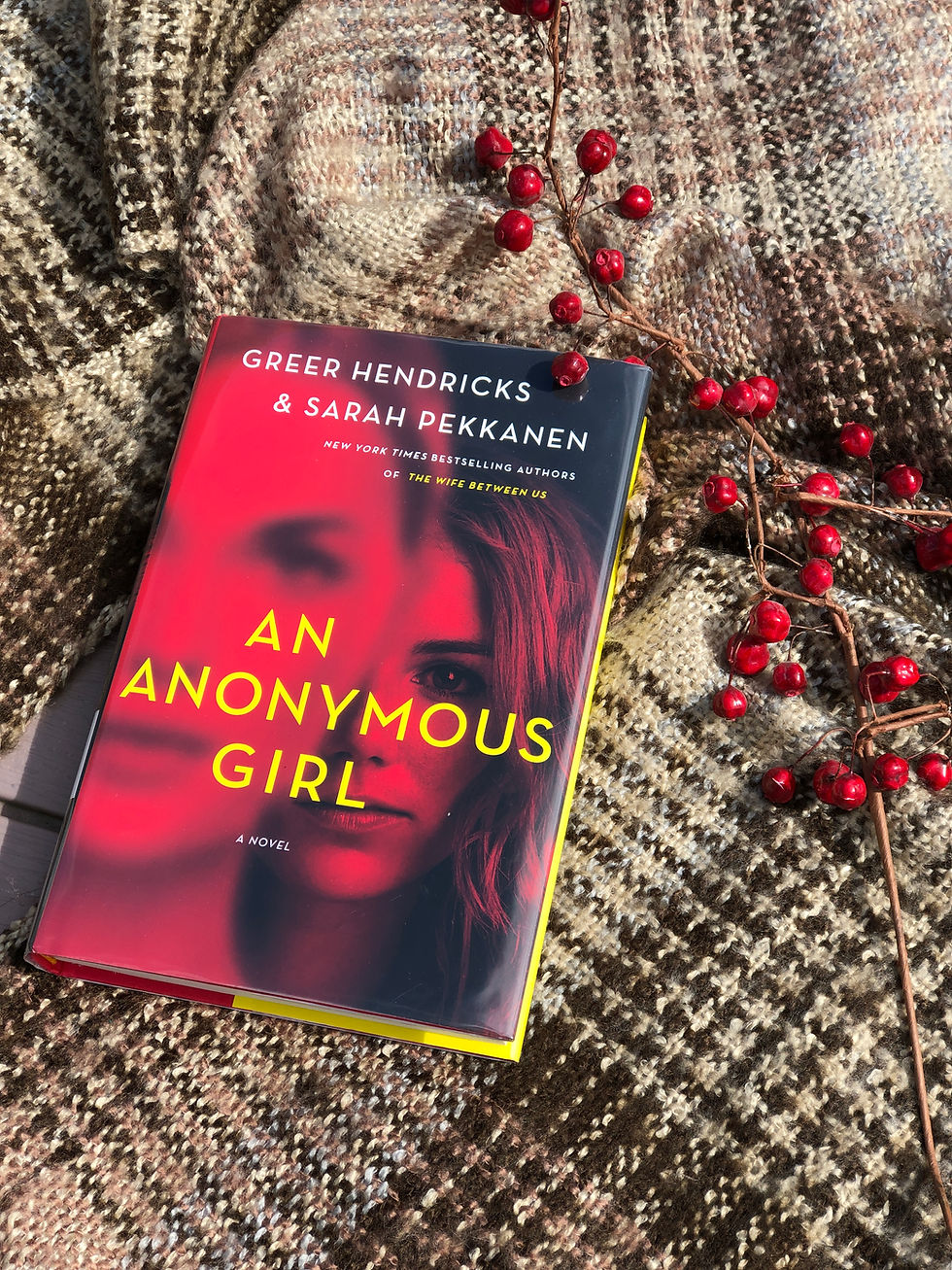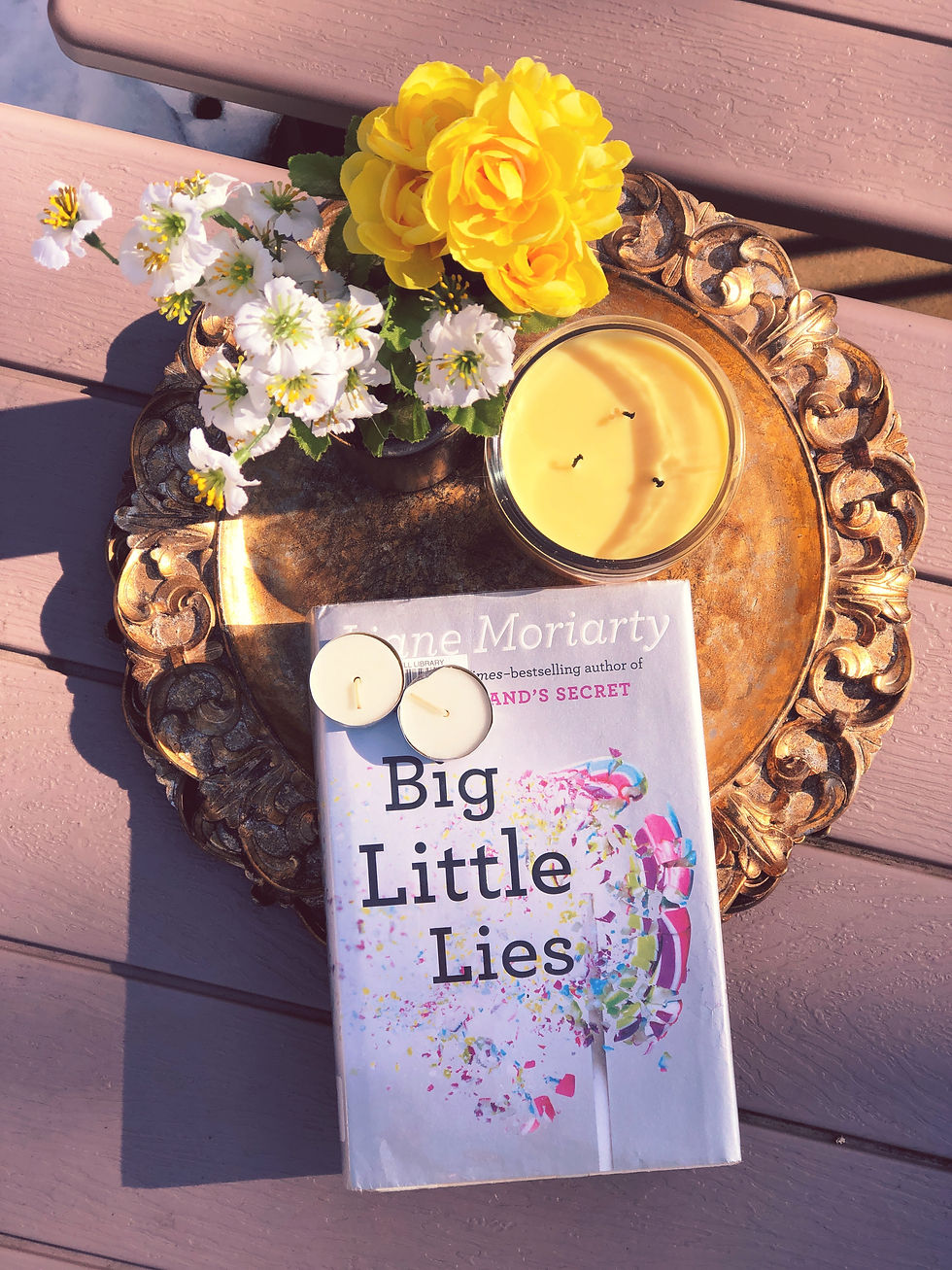All the Light We Cannot See
- Gulrukh Haroon
- Feb 4, 2018
- 4 min read
Updated: Feb 10, 2018
It would be an understatement to call this work of fiction a piece of art. This book does not claim to be a work of historical fiction, although it is set within the time frame of World War II, to give the reader a sense of location, both in time and space.
How beautifully Doerr was able to develop characters which resonate with the hearts and minds of all people everywhere. How elegantly he is able to depart from the physical concepts of good and evil, of right and wrong, of black and white. How fluidly he was able to show the world in its brightest colors through the eyes of a curious girl who can see none of it. How triumphantly he is able to show the never-ending love of a father for his daughter, the way that love transcends fear, makes each of us a super-human in our own right.
Through the story of Daniel LeBlanc, we learn that a scientist does not have to shy away from fables and fiction. That the world of logic and puzzles coexists with the world of goddesses and curses. That belief in anything is what allows us to live, that belief in the unseen or unbelievable is what allows us to live our best lives. We learn of the unending love of a father for his daughter. We learn that a man, director and keeper of keys at a museum, architect of the most beautiful puzzle model, and carrier of an ancient prize, can learn to see the world anew in the eyes of his beloved, sightless daughter. That there is beauty in all things, and this beauty does not need to be seen to be known. We learn that words can become oceans for those whom we love, to be repeated over and over, endlessly, forever. “I will never leave you. Not in a million years, ma cherie.” Marie-Laure is able to fight with resilience for so long just repeating this one phrase of love, reminding herself that one soul among the billions puts her life before his own, that there is one person that she knows she has to live on for.

Through the story of Etienne LeBlanc, we learn of starting over. A man of courage and curiosity became a man frightened of the world within which he used to dream and live and exist. He is scared beyond belief of what he believes roams the streets, and learns to be fearless from his blind 16-year-old niece, orphaned and alone, and yet, stronger than he could ever be. Her wonder never dissipates, her passion for the world and knowledge never decreases, and yet her every step is one in an uncharted abyss of black. He tells himself he is incapable of changing in his old age, that he had his time to live like Marie-Laure, but when she is in danger, he is able to conquer this unbearable fear and step outside. For love is our biggest motivator.
Through the story of Werner Pfennig, we learn of passion, prowess and possibility. His mentor and unlikely friend Volkheimer chants a mantra similar to Daniel LeBlanc’s to his daughter, “Oh the things you could do.” It is too bad that Werner didn’t believe it himself, or that he decided he was undeserving. Werner believes he is undeserving and incapable of a life of love, wealth and honor, as an orphaned boy in Children’s House with his younger sister Jutta. He is passionate about science, headstrong and yet open-minded, eager to soak up knowledge. Through his venture to the Academy in Schulpforta he begins to lose himself, always believing that what he does is for the greater good. As he is surrounded by people learning evil, doing evil, he sees the humanity in it, believing that if he is good that doing bad things is not a bad thing. Werner is an innocent child, the product of terrible circumstances. He is fighting for the wrong side. He doesn’t see another option. He is not strong enough to defy direct orders, he is unable to defend his friend who is wrongfully tormented. He is unable to live by the courageous words of his wiser younger sister, who asked “Is it okay to do something just because everyone else is doing it?”
He doesn't lose himself, though, because a piece of him dies every time another death occurs, every time he sees somebody wrongfully hurt. Each one is a blow at his youth, a blow at his innocence. He regrets his path, he tries to leave, to return home, and is denied that right due to his intelligence. We learn the cost of knowledge. But we also learn that people can redeem themselves. If it wasn’t for Werner Pfennig, there would be no Marie-Laure beyond the age of 16. Etienne would never travel outside of Saint-Malo. There would be no Helene, no Michel. An entire family, a generation of beautiful human beings, would have been lost. His selflessness, his ability to love and care despite the tragedies he went through, despite the brainwashing and torment, are what save a generation of beautiful human beings. Even somebody warped into a tormented haze can be human, can be loving, can be capable of beautiful things, if they are just given the chance to prove themselves.
And through Marie-Laure, we learn resilience. We learn to live life with passions and interests. We learn that this world is beautiful in the dark, so we should not be complaining when we have the ability to see in the light. We take for granted too much. The words on the pages we can read. That we can see ourselves and our loved ones. That we can see nature and buildings and animals. That we know what we look like. That we can see ourselves grow old, experience the world, travel and exist. We learn that there is always a life to be lived, even if it isn’t the one we had planned for, even if it isn’t the one we thought we wanted. We learn that love pulls us through. Belief can be enough to help us survive even the most tragic events. That life will continue with or without us, so it’s in our best interest to stay along for the ride. To learn and live and love. To see.




Comments